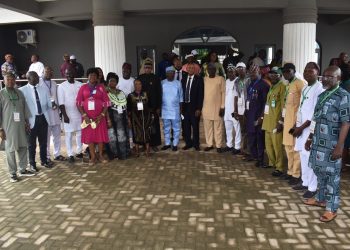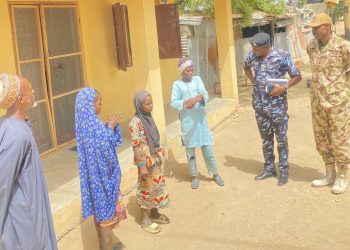By Nkechi Eze
Nigeria has once again taken centre stage in the global conversation on gender equality, with Minister of Women Affairs, Imaan Sulaiman-Ibrahim, delivering a powerful address at the United Nations General Assembly in New York that earned admiration for its clarity, vision, and passion.
Speaking at the High-Level Meeting to mark the 30th Anniversary of the Fourth World Conference on Women, the Minister reaffirmed Nigeria’s strong commitment to the Beijing Declaration and Platform for Action, describing it as a “transformative vision” designed to dismantle discrimination and empower women everywhere.
In a statement signed by her Special Adviser on Media and Publicity, Mr. Jonathan Eze, she highlighted Nigeria’s progress over the years, pointing to higher school enrolment for girls, stronger laws against gender-based violence, women breaking barriers in leadership and business, and expanded opportunities for women in governance and science. Yet, she candidly acknowledged that systemic inequalities, climate change, conflict, and the digital divide continue to undermine the wellbeing of women and girls worldwide.
“Thirty years after the landmark Beijing Conference, we gather here to commemorate history, but also to accelerate its transformative vision: a world where gender equality isn’t an aspiration, but a lived reality for every woman and girl,” she declared. “In 1995, our nations made a solemn promise: to dismantle discrimination, to champion women’s rights, and to unleash their full, magnificent potential. Nigeria embraced that promise with conviction, knowing our national progress is inseparable from the empowerment of our women and girls.”
The Minister stressed that while progress has been made, the global community must act with urgency. “Yet, we must be honest with ourselves: the road ahead remains long. Millions of women and girls still face systemic inequality, violence, and exclusion. Global crises – from climate change to conflict and the digital divide – deepen their vulnerability. At this pace, the 2030 target for gender equality risks becoming a deferred dream.”
Outlining Nigeria’s renewed commitments, Sulaiman-Ibrahim placed education at the heart of the agenda, describing it as the most powerful investment in breaking cycles of poverty. “Our first and most vital investment is in the education of our girls, which we see as the surest pathway out of poverty and the bedrock of our future,” she said. She explained that Nigeria is integrating climate resilience and digital inclusion into its education system, while leveraging the National Gender Policy and Women’s Economic Empowerment Policy to ensure women are not left behind in the technological revolution.
The Minister spotlighted flagship initiatives such as the Renewed Hope Women Agro-Value Expansion Programme, which aims to empower 10 million women across the agricultural value chain, alongside other social impact interventions under Nigeria’s Agenda 2050 that place women and children at the centre of national development.
She also reiterated Nigeria’s zero-tolerance stance on gender-based violence. “We are taking a zero-tolerance approach to gender-based violence, enforcing stronger laws, expanding survivor support, and, most critically, driving a profound cultural shift where men and boys become active champions of change,” she said.
On political participation, Sulaiman-Ibrahim emphasized that women must not only be educated and empowered, but also represented at the highest levels of decision-making. She pointed to deliberate policies, including Special Reserved Seats, aimed at increasing women’s voices in governance. “Finally, as women rise through education and empowerment, we must ensure their voices are heard at the highest levels of power. Women are therefore not an afterthought in Nigeria’s future; they are the driving force.”
In a stirring conclusion, the Minister declared: “Excellencies, the verdict of history is clear: nations that empower women are more prosperous, more peaceful, and more resilient. Gender equality is not just a human right; it is an economic imperative, a social necessity, and the very foundation of sustainable development and peace. Let this 80th General Assembly be remembered for its actions. Let it mark the moment we, as a global community, turned pledges into progress and rhetoric into results. Nigeria stands ready to work with all nations, civil society, and the private sector to fulfill the promise of Beijing, for every woman, for every girl, everywhere.”

















